Lucy Letby: Inside the mind of a serial killer – the psychology behind healthcare murderers
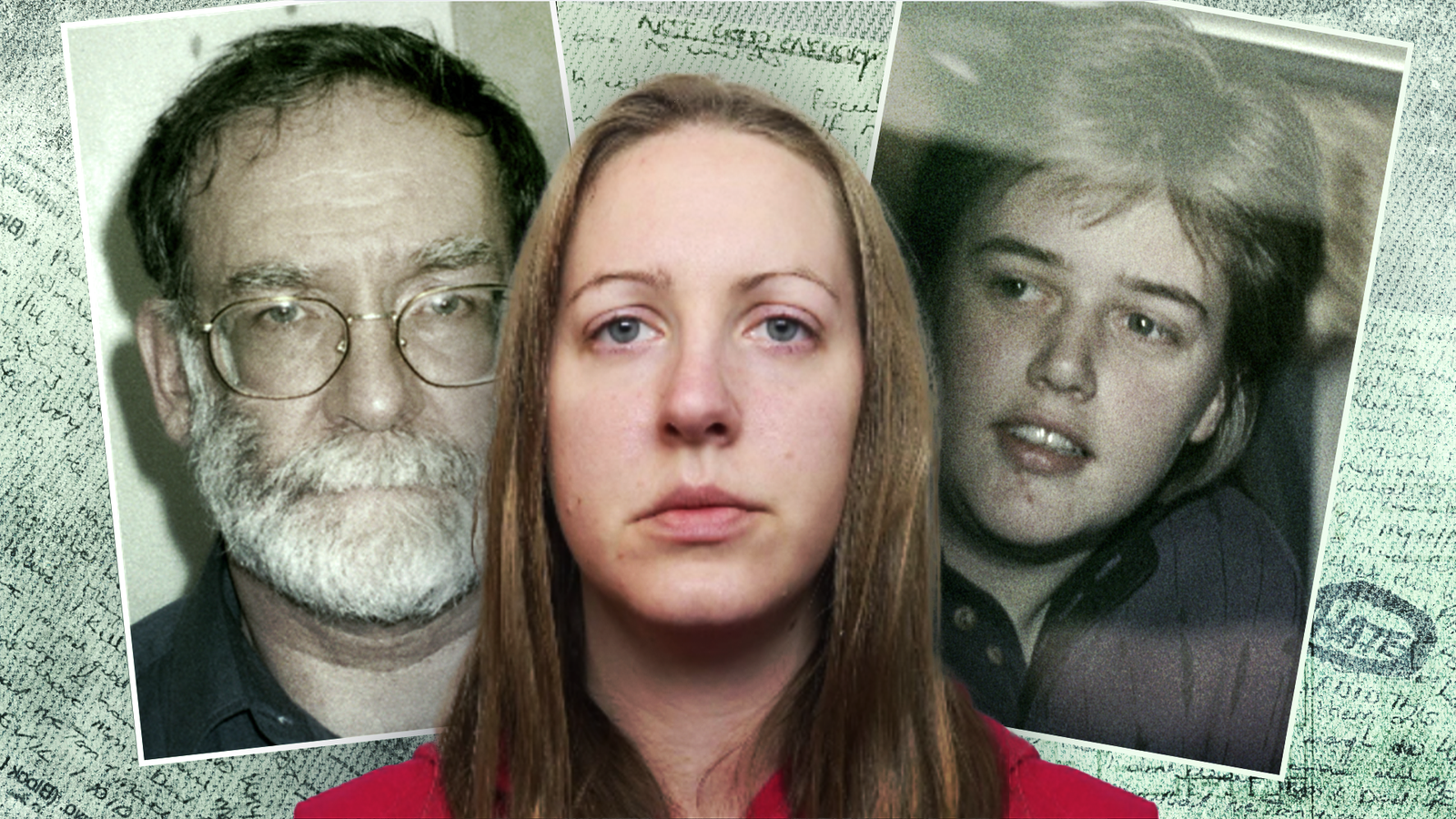

“I am a horrible evil person… I AM EVIL I DID THIS.” These were nurse Lucy Letby’s own words, written on a piece of notepaper found by police investigating the deaths of babies on her unit. “I don’t deserve to live. I killed them on purpose because I’m not good enough to care for them.”
Lucy Letby is a serial killer, the most prolific child murderer of modern times in the UK; her name now forever associated with the likes of other medical monsters such as GP Harold Shipman and nurse Beverley Allitt. She is also one of the most prolific female serial killers in British history, alongside the likes of Rose West and Moors murderer Myra Hindley.
After a complex and harrowing trial lasting more than nine months, jurors found her guilty of murdering seven infants and attempting to murder six more – one of them twice – during a year-long period between 2015 and 2016, while working on the Countess of Chester’s neonatal unit.
In pictures taken at work and socially, Letby, 33, is smiling, carefree-looking, apparently happy. You might describe her as someone who looks “nice” or “kind” or “friendly” or like a million other young women, about as far-removed as you could get from the image of a serial killer that would spring to mind for most.
The motivation behind such an horrific killing spree, taking the lives of tiny babies who didn’t stand a chance, is unfathomable – even to some experts who have spent years profiling murderers.
Dr Sohom Das, a consultant forensic psychiatrist whose work takes him into prisons and secure hospitals such as Broadmoor, says Letby doesn’t fit any “typical” killer profiles. Having assessed several women who have killed babies – usually mothers – he also says most are usually driven by psychotic beliefs.
“I’ve seen at least two or three patients who have had delusional beliefs related to schizophrenia, for example, where they believe children are marked by the devil, that they’re somehow saving them from hell or damnation,” he tells Sky News. “Lucy Letby doesn’t fit into that category. I’ve also met serial killers and they tend to be antisocial, angry, they tend to have a long criminal history of violence. Again, Lucy Letby doesn’t fit that kind of motivation.”
Beverley Allitt: ‘Angel of Death’
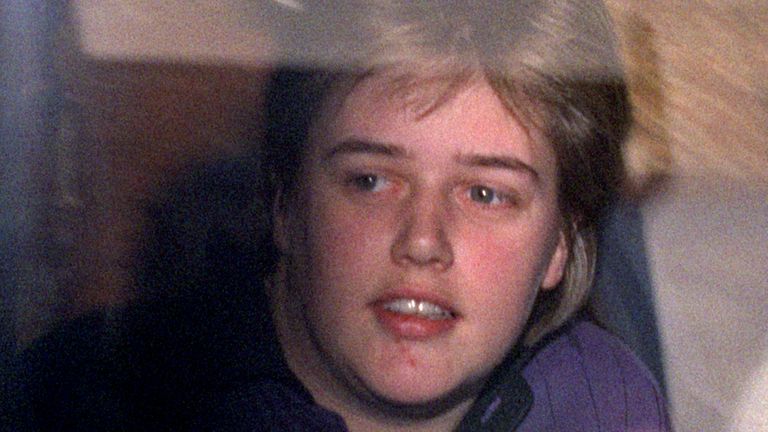
Dr Das describes the case of Beverley Allitt – the nurse known as the “Angel of Death” who murdered four babies and attempted to kill others in Grantham, Lincolnshire, in 1991 – as “eerily similar” in terms of how the children were attacked. Letby injected air into babies’ bloodstreams and overdosed them with insulin, as did Allitt.
However, he does not believe the motivation to be the same. Allitt drew attention to the babies being ill, he says, and wanted attention herself, while Letby did the opposite.
“[Allitt] had Munchausen by proxy – when someone fakes illnesses in other people, usually their own kids, because they like to be connected to the process of ‘being victims’, they like the empathy and sympathy,” he says. “I don’t think Lucy Letby fits that pattern because she wasn’t trying to seek attention.”
Read more on Lucy Letby:
Parents of twin boys criticise hospital bosses
Nurse may have killed others, families told
Mother fears Letby harmed baby in act of revenge
One theory put forward by the prosecution during her trial was that Letby “sabotaged” the care of one baby boy – one of two triplets she murdered – to get the attention of a doctor she had a crush on.
But Beatrice Yorker, a professor emerita of nursing and criminal justice and criminalistics at California State University in Los Angeles, agrees it does not appear as if the nurse was seeking attention.
She highlights the case of Richard Angelo, a nurse who was convicted of killing four patients and suspected of causing more deaths in New York in 1987. “When they arrested him… he admitted it. He said, ‘I do it for the respect that I get from my nursing and doctor colleagues because I perform very well in a code’ (cardiac arrest)…
“I haven’t read anything about Lucy Letby that indicates she wanted to be the centre of attention, that she enjoyed resuscitation of the infants. She seemed much more clandestine and deceitful. Kind of sadistic, maybe.”
Please use Chrome browser for a more accessible video player

7:12
‘They could have stopped her’
Professor Yorker, who has studied more than 130 cases globally of health professionals who kill, says one motive, if not attention, “seemed to be… an act of covert violence or sadism” as the perpetrators found themselves in a position of power.
“They realise that you don’t have to bludgeon somebody, you don’t have to shoot somebody. It is a very powerful way to kill somebody, just to give them a few extra drops of a substance that can make their heart stop. And you don’t even have to prick them with a needle, you inject it into their IV line. That’s a lot of power for people who might have a propensity to kill people or injure people or be violent in a very, very covert way.”
‘Dr Death’ Harold Shipman
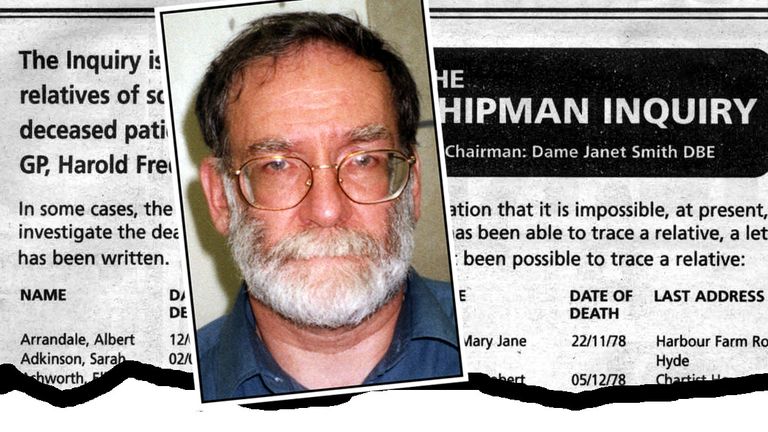
Harold Shipman is one of the UK’s most notorious serial killers. A GP in Hyde, Greater Manchester, he was convicted in 2000 of murdering 15 people between 1995 and 1998, but is suspected to have potentially killed as many as 250 between 1975 and 1998.
He had a “God complex”, says Dr Das. “It was like he was deciding whether to let people live or die, almost like mercy killings.” But rather than having a God complex, he believes Letby suffers from low self-esteem and self-confidence, related to depression and anxiety.
“This kind of offence is so rare anyway, but of the times that it has occurred there are so many typical pigeonholes and criteria and oddly to me, Lucy Letby doesn’t fit into any of them,” Dr Das continued. “So to answer the question, what is the motivation? It’s really hard to actually know. When people do things like this and don’t fit into those categories, it’s usually out of some sort of jealousy or some sort of anger.”
Read more:
How the police caught Lucy Letby
The moment of Letby’s arrest
Inside courtroom seven: The story of the nine-month trial
One of the lines in the note by Letby found by police, which was shown to the court during her trial, said she had an “overwhelming fear… I’ll never have children or marry… I will never know what it’s like to have a family… despair”.
“I think at a stretch you could say she was jealous of these happy families,” says Dr Das. “I think maybe [an explanation could be] that she is somehow connected potentially to the emotional process of grieving. She was present when a lot of these babies died, sometimes when they weren’t even her patients, it’s almost like she went out of her way to be part of that. And that’s something I’ve never heard of or seen in my clinical experience, but it’s the only logical answer I can come to.”
Murders by medics not as rare as you might think
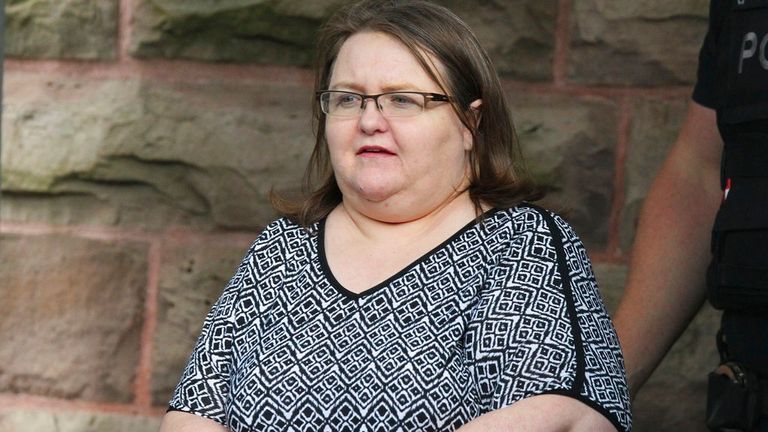
In the UK, Shipman is the most well known medical killer, but in recent years there has also been Allitt and others – such as the case of ‘Devil Nurse’ Victorino Chua, who was jailed for life with a minimum of 35 years in 2015, for the murder and poisoning of patients at Stepping Hill Hospital in Stockport, Greater Manchester.
After the Letby verdicts were made public, Cheshire police confirmed they are now investigating whether the nurse could have attacked other children in her care before June 2015.
Professor Yorker says that while killers in the medical profession are rare, her research suggests there may be more than those we know about.
She highlights the “sobering” case of Canadian care home nurse Elizabeth Wettlaufer, whose crimes were only uncovered when she told someone she had been murdering and attempting to murder her elderly patients over a period of nine years.
“She would not have been caught,” Professor Yorker says. “She never did it long enough or enough to raise an index of suspicion where you go, okay, we had five deaths a year and now we’ve got 20. She would just do enough to keep it below the radar of the statisticians and risk managers who look at records and incidents of critical patient incidents and deaths.”
One question raised by Letby’s conviction is about her motivations for becoming a nurse – did she enter healthcare in order to kill? Or did this “dark side” develop only once she had started?
Dr Katherine Ramsland, an expert in serial killers who teaches forensic psychology at DeSales University in Pennsylvania, has seen both cases. “It’s a mix,” she says. “Some view healthcare agencies as places of trust where predators have advantages, others are worn down by the demands and decide to ‘reduce’ the workload or set someone up to make them look bad.”
Some can also develop “a delusional belief that they’re helping a patient”, while others see “easy prey for things like theft or self-empowerment, or even thrill,” she adds.
Is Letby a psychopath?
Please use Chrome browser for a more accessible video player
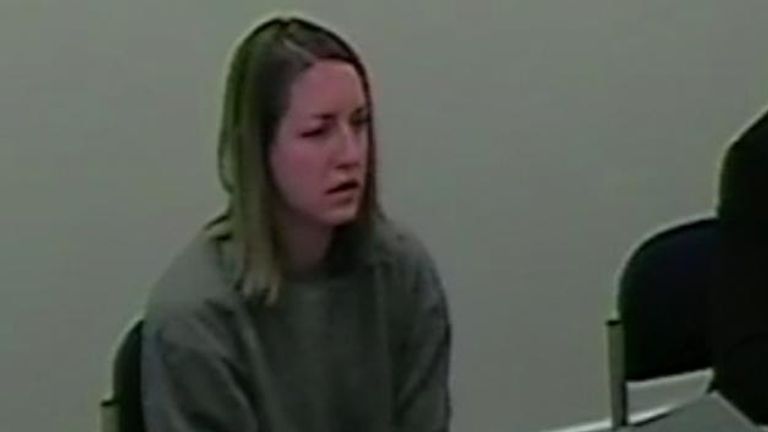
1:10
Letby’s police interview and arrest
A psychopath is someone with an antisocial personality disorder, according to the NHS. This means they are manipulative, lack empathy, and often have a total disregard for the consequences of their actions.
Dr Jane Carter Woodrow, a screenwriter and member of the British Society of Criminology who has written several books about murderers and serial killers, says it would be hard to argue against this in Letby’s case. “How could she not be to be able to do those things,” she says. “It’s the most cowardly act of all killers, [to kill] a child or an elderly person.”
Dr Carter Woodrow says that “once you’ve crossed that line” and “murdered for the first time, I think it gets easier. And you see she feels emboldened as time goes on and the cases kind of escalate, particularly towards the end”.
The fact Letby pleaded not guilty also shows psychopathic traits, she says. “She could have pleaded guilty and not put the parents through this terrible trauma again. She could have spared them all these details they’ve had to sit through.”
During the trial, the jury heard how Letby told one mother, “Trust me, I’m a nurse”, as she killed one baby. She also sent a sympathy card to the parents of another she had murdered.
“I think this was about power,” says Dr Carter Woodrow. “Saying, ‘trust me, I’m a nurse’, all the time knowing what she was going to go and do… it’s like somebody with a card up their sleeve that they’re almost laughing about.”
Please use Chrome browser for a more accessible video player

0:43
CPS on Letby’s ‘darker side’ behind ‘angelic smile’
But Dr Das says Letby should not necessarily be classed as a psychopath. “Psychopaths are impulsive, they lack empathy, they don’t care about the rights of other people, they’re very self-serving, self-centred. You could argue she’s all of those things but crucially, a psychopath is really manipulative and deceitful.
“A psychopath does almost everything for a reason, to benefit themselves. So if somehow killing these babies furthered her career, I suppose you could argue at a push that she was a psychopath. But it doesn’t seem like there’s any logical motivation. She’d have some psychopathic traits but I don’t think she’d be a clinical psychopath.
“Psychopaths are also criminally versatile, so a good psychopath can be violent, they lie and they manipulate. They’re often quite fraudulent and they commit other types of offences like robbery, speeding. She never did any of that, she didn’t have any kind of criminal history, there’s no history of aggression. So she just wouldn’t fit into the pattern of what a true psychopath is.”
Dr Das adds that he does not believe Letby is suffering from psychosis and that she knew what she was doing. Dr Ramsland agrees: “She doesn’t seem psychotic, so she would likely have some sense of her behaviour and the way society evaluates it. Whether she would feel remorse is a different question.”
‘High shame, high denial’
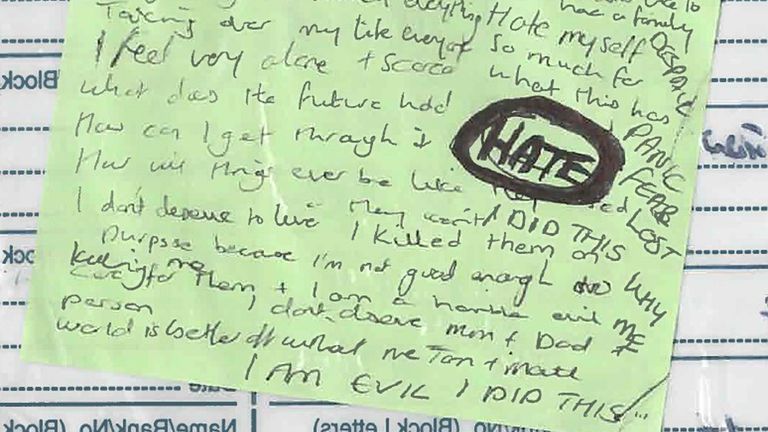
The note written by Letby is an example of “high shame, high denial”, says Professor Yorker, something which applies to “child abusers, paedophiles who act out on their interests, and healthcare killers – and it applies to addiction”.
The 12 steps of Alcoholics Anonymous include a step to take each day at a time, she says, because “you can’t cure these high compulsive addictive disorders – you can only deter them or get into recovery where you take it a day at a time. You just say, for this day, I’m not going to act on my urge to drink, or my urge to binge and purge – or my urge to kill.”
While Letby’s note suggested she was admitting the crimes, her denials in court showed otherwise. But Dr Das says it shows “that on some level a part of her does actually feel remorse”. He continues: “People can commit horrible crimes and still feel guilty. In fact, serial killers, especially disorganised serial killers, often battle with this internal kind of conflict, so they feel compelled to go out and kill but they also feel at times guilty of their actions as well. But whatever that part is, it obviously wasn’t present enough for her to tell the truth during a criminal trial.”
Is there any chance someone like this could be rehabilitated?
Dr Ramsland says this would depend on their motivation and psychological state at the time. “Sometimes, healthcare workers are depressed or stressed, so they harm patients as a way to relieve stress or feel empowered. In that case, medication and therapy could assist to improve their behaviour. If they’re highly predatory, however, they’re unlikely to respond well to treatment.”
The difficulties detecting healthcare killers
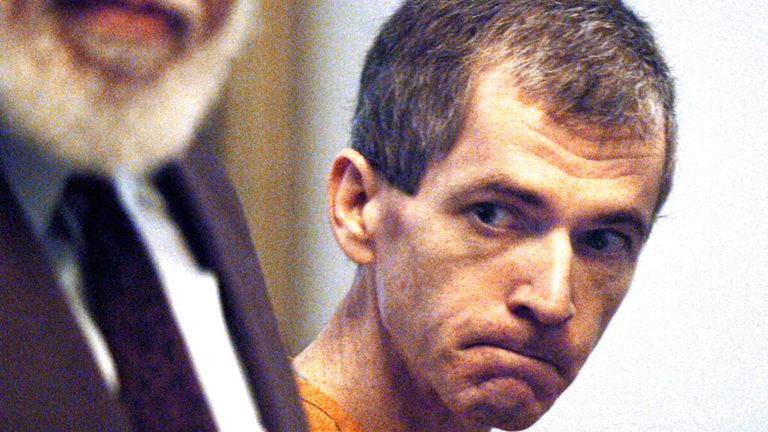
In 2022, the story of US serial killer Charles Cullen was dramatised in the Netflix film The Good Nurse, starring Eddie Redmayne and Jessica Chastain.
He killed patients over a 16-year period and eventually admitted to 30 to 40 murders, but the true number is thought to be closer to 400 – which would make him the most prolific serial killer in US history.
Letby started working at the Chester hospital’s neonatal unit just before her 22nd birthday – around four years before the start of the allegations in the trial – and colleagues raised suspicions more than a year before bosses contacted the police.
Click to subscribe to the Sky News Daily wherever you get your podcasts
Professor Yorker says such crimes by healthcare workers may take longer to uncover than say, those by serial killers who stab their victims, as they are usually not as obvious until numbers start stacking up. “We can’t predict, we can’t know why somebody that has antisocial tendencies would cross the line to do this. It makes it really hard to detect.”
Another reason for delays in catching healthcare killers is that society is conditioned to believe certain groups of people are “good”, she says. “For example, the Catholic priesthood, the Boy Scouts. We as a society have been in denial for years where we think really good, upstanding citizens like a Catholic priest or a Boy Scout leader could possibly be molesting children.”
This conditioning can be even higher for women, as women make up such a small percentage of killers, she adds. “This is a feminine form of abuse, even though there are quite a few male doctors and male nurses who engage in healthcare serial killing. We as a society recognise masculine forms of violence – bludgeoning, shooting, stabbing, strangling, raping, those kinds of acts are overtly aggressive. What we as a society do not recognise are the covert or the feminine forms of violence – smothering, injecting, poisoning.”
And while people may think serial killers or psychopaths might stand out, Dr Carter Woodrow says it is often the opposite. “It is not really a question of looking different. It’s looking the same as everyone else – and that’s how you fool people.”